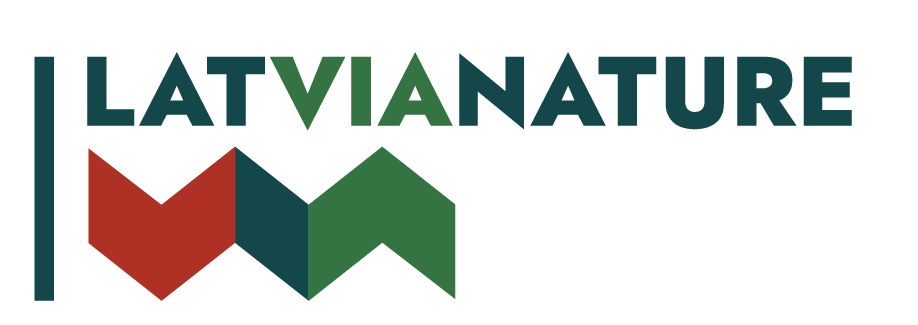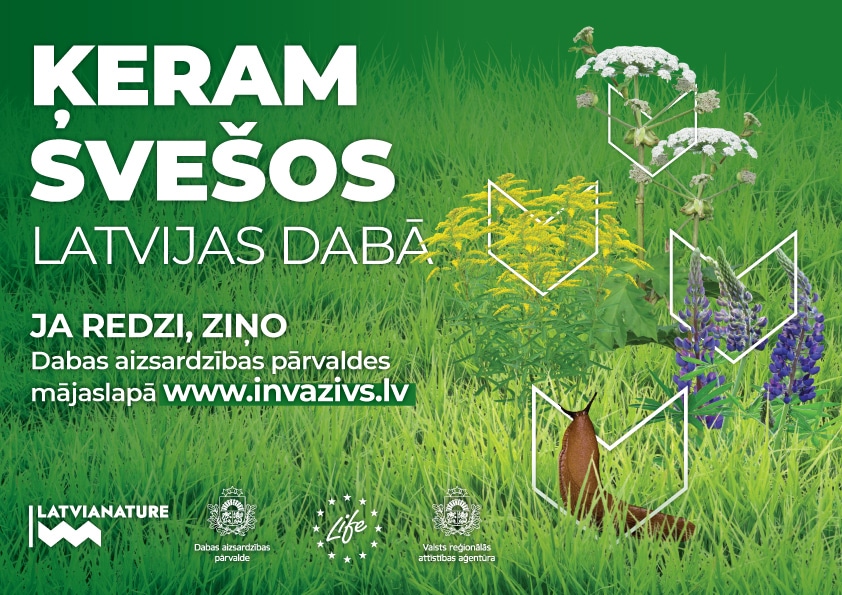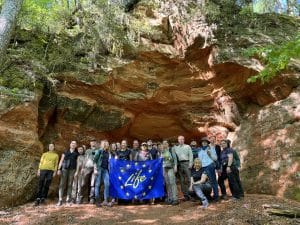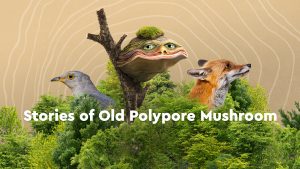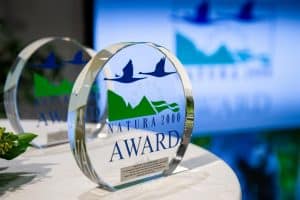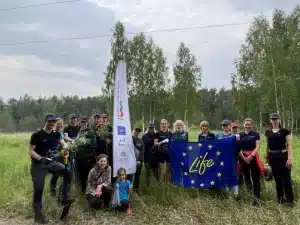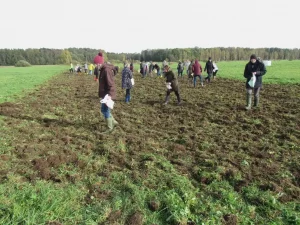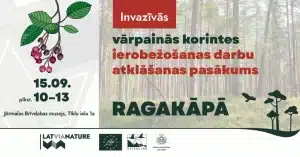“With the informative campaign, we will draw attention to the “aliens in Latvian nature” – harmful invasive species of plants and animals that threaten our biodiversity. We will also encourage people to report invasive species on the website of the Nature Conservation Agency www.invazivs.lv (application the Invasive Species Manager). We’ll pay attention not only to the Sosnowsky’s Hogweed Heracleum sosnowskyi, which is a well-known invasive species, but also to the already widespread Spanish slug Arion vulgaris and lupines Lupinus polyphyllus. At the same time, we will pay attention to a number of invasive plant species, which we do not usually perceive as a threat to our nature: Canadian goldenrod Solidago canadensis, Himalayan balsam Impatiens glandulifera, Japanese rose Rosa rugosa, dwarf serviceberry Amelanchier spicata, and Manitoba maple Acer negundo, “ says Andris Širovs, Acting Director General of the Nature Conservation Agency, and adds: “All of them have a scientifically proven negative impact on biodiversity, and we can eradicate them only in cooperation with the public”.
How to report invasive species on the website www.invazivs.lv?
Information on invasive species in Latvia is being gathered on the website of the Nature Conservation Agency (NCA) www.invazivs.lv in a way that everyone can recognize the species seeing in nature and report them to nature experts and scientists, helping them with early detection and locating the distribution of the “aliens”, as well as planning eradication measures. Reports can be submitted on the website www.invazivs.lv by filling out a short form and pointing the location on the map. Modern nature protection is based on science and cooperation – everyone’s practical involvement. Scientists and nature experts who work daily at the NCA, Daugavpils University and Latvian Institute of Aquatic Ecology examine each submitted report.
“The Detectives of Invasive Species” in Latgale
The premiere of the movie “The Detectives of Invasive Species” at the Latgale Embassy “Gors” will open the campaign. The location of the premiere is not coincidental – the actions of the movie take place in Latgale, where the spread of invasive species is particularly fast. The data provided by the Invasive Species Manager show that the most frequently reported invasive plant species in Latgale are Sosnovsky’s hogweed, Canadian goldenrod, Manitoba maple, Himalayan balsam, garden lupine Lupinus polyphyllus and balsam-apple Echinocystis lobata. The movie is about two girls who came to visit the grandparents for vacations in the picturesque Land of Blue Lakes, how Latgale is often called. When the vacationers encounter stands of the dangerous Sosnovsky’s hogweed, they decide to explore this and other dangerous plants. The premiere with a free entry will take place on Friday, May 19, at 14.00 at the Embassy of Latgale “Gors” in Rēzekne, Pils ielā 4.
The movie will be preceded by a discussion with invasive species experts, with the participation of Acting Director General of the NCA Andris Širovs, Director of Latgale Regional Administration of the NCA Anda Zeize, Member of Parliament and nature expert Andrejs Svilāns, LatViaNature invasive species expert Santa Rutkovska, and expert of the State Plant Protection Service Astra Garkāje.
The “Let’s Catch Alien Species in Latvian Nature!” voluntary event
Everyone will have the opportunity to learn methods and practically eradicate invasive species together with nature experts in the campaign during the “Let’s Catch Aliens in Latvian Nature!” voluntary event on June 15, 2023, at 10.00 in the Nature Reserve “Vecdaugava”, where Himalayan balsams and Japanese roses have spread over an area of almost seven hectares. Meeting place: Skanstnieku Street on the bank of Vecdaugava, at the entrance to the Nature Reserve “Vecdaugava” (ej.uz/Talka_Keram_svesos_Latvijas_daba).
FOR REFERENCE
Invasive species in Latvian nature
About a third of the plant and animal species found in Latvian nature are foreign species. About 10% of alien species are harmful invasive species that threaten the biodiversity of Latvia by aggressively spreading and outcompeting local species. Invasive species can not only cause economic damage and changes in natural ecosystems; certain species also may harm human health. In Latvia, invasive plants and animals are becoming a growing problem, as they significantly impact biodiversity.
Research: landowners’ knowledge is modest
Vidzeme University of Applied Sciences conducted a survey within LatViaNature (“Invasive plant species and managing their spread in Latvia“ ) to find out the know-how and experience of Latvian landowners or managers about invasive plant species. Respondents from various regions took part in the survey, thus the distribution of survey respondents and the managed properties was representative for the whole Latvia.
In general, it must be concluded that the spread of invasive alien plants in Latvia has become a serious problem that requires attention and action from all involved parties. This is necessary to protect and restore local habitats and protect Latvian nature from the invasion of alien species.
The survey confirms that 79% of the respondents agree that invasive plants are like weeds and must be controlled. 75% believe that this is a significant problem for Latvia, causing economic losses. The majority of the respondents disagree that invasive plant species increase biodiversity and the beauty of landscapes, or can be economically profitable.
The survey also revealed that 52% of the respondents had surveyed their properties to detect the presence of invasive plant species, while 28% had not paid attention to it. 49% of the respondents feel the concern about the spread of invasive plants in Latvia.
63% of the respondents admitted that an invasive plant species was found on their property. The most common invasive plants were Sosnowsky’s hogweed, Canadian goldenrod and garden lupine.
Finally, the survey suggests that the knowledge of the respondents on invasive plant species is mediocre. Thus, it is desirable that all property managers in Latvia shall be even more informed about the problem and invest resources in solving it.
How do invasive plants and animals come to Latvia?
Invasive plants and animals come to Latvia in various ways due to conscious or unconscious activities of people. Many plants were introduced to Latvia as ornamental plants or agricultural crops, but over time they have adapted to the conditions in the wild and are outcompeting local species.
Both plants and animals can also arrive by accident – in ship holds, postal parcels, potted plants, or otherwise. It’s a faulty belief that aliens increase the biodiversity of Latvia. On the contrary, they outcompete local plants and animals, contribute to changes in the soil and the environment, destroy the food base and often become a serious problem for people.
Most of these alien plants were brought to Latvia in the 20th century, for example, the Sosnowsky’s hogweed as a fodder plant, Himalayan balsam and Canadian goldenrod as ornamental garden plants.
